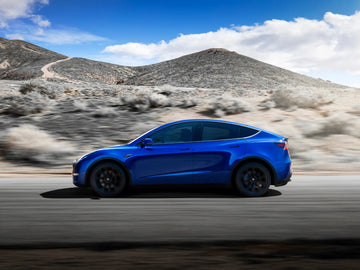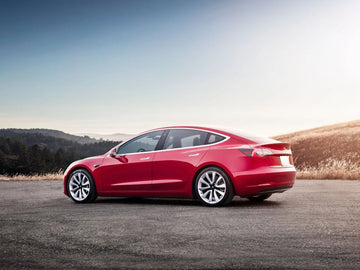On April 25, the world's largest social media Twitter announced that it has accepted the privatization acquisition plan of the world's richest man Elon Musk. Musk will acquire Twitter at a price of $54.2 per share, a transaction valued at about to $44 billion. This has also become the second largest acquisition in the world so far in 2022.
The deal has been unanimously approved by Twitter’s board, but still requires shareholder and regulatory approvals and is expected to close in 2022. After the deal, Twitter will become a privately held company.

1 Notable Acquisitions
Musk's acquisition of Twitter will start at the beginning of this year. At that time, Musk, as a loyal user of Twitter, have coveted it for a long time. On January 31, Musk bought more than 620,000 Twitter shares in one fell swoop. Since then, he has not been absent from trading on each trading day, and he bought 4.8 million shares on the most one day.
As of April 4, Musk has spent nearly $3 billion to own nearly 9.2% of Twitter's shares, becoming Twitter's largest shareholder. But that's not Musk's ultimate goal. After rejecting an offer from Twitter's board, Musk announced that he was buying Twitter. On April 14, Musk updated his 13D filing with the U.S. Securities and Exchange Commission (SEC), which showed that he made a proposal to take Twitter private, buying Twitter’s issued common stock at a price of $54.2 per share.. Musk said the offer was his highest and final offer. If not accepted, he will reconsider his status as a Twitter shareholder.
As soon as the acquisition plan was proposed, it immediately caused an uproar in the market.

At the beginning of the acquisition turmoil, Twitter was very resistant to Musk's action, and even started the "poison pill plan" to show its attitude. A "poison pill" is a takeover term, a defensive tactic against a potential hostile takeover in which a company allows existing shareholders to buy additional shares at a discount, driving up costs for the acquirer.
At the same time, under the advice of Wall Street think tanks such as Morgan Stanley, Musk obtained the guarantee of M&A funding. In the early morning of April 23, Musk sent out a tweet declaring that "savages are at the door," forcing Twitter's board of directors to the brink of a decision. The global media are eagerly waiting, thinking that a capital war of mergers and acquisitions and anti-mergers will be staged, but they never expected that Twitter's surrender would come so quickly.
On April 25, Twitter’s board of directors agreed that Musk would buy Twitter at a price of $54.20 per share in cash, for a total consideration of $44 billion. It is reported that Musk will pay $210 directly for the acquisition, and has already received $25.5 billion in financing, including debt financing and margin loan financing, totaling $46.5 billion, which is not only enough to pay Twitter in cash, but also enough to pay investment banks. and attorney fees.
2 What Is the Intention?
Twitter is the largest English-language social media in daily life after Facebook and Instagram. But in fact, Twitter has long since become an unprofitable company.
In 2013, Twitter went public. According to its prospectus, Twitter’s revenue in 2012 was $319 million, with a net loss of $79.4 million. In 2021, Twitter's revenue will be just $5.08 billion -- less than one-twentieth that of Facebook, the other big social giant, with a net loss of $221 million.

For comparison, Sina Weibo's revenue in 2021 is $2.26 billion, and its adjusted operating profit is $829.2 million. In terms of profitability, Twitter is far from making money as Weibo.
Twitter's user growth, on the other hand, hit the pause button years ago. According to official data, Twitter has 217 million monthly active users in 2021, and is expected to exceed 315 million monthly active users by the end of 2023. But in fact, as early as June 30, 2013, Twitter's monthly active users reached 218 million, which means that in the past nine years, Twitter's monthly active users have basically been in a state of zero growth. As of the end of the fourth quarter of 2021, the peer Sina Weibo had 573 million monthly active users and 249 million daily active users. What's more, Sina Weibo is still more popular in the smaller Chinese market.
Poor performance and stagnant growth, why did Musk buy Twitter? In a public statement in mid-April, Musk noted that his acquisition of Twitter was "without economics," but only about the public significance of Twitter's role as a platform for speech. After the successful acquisition of Twitter, Musk tweeted: "Freedom of speech is the cornerstone of a functioning democratic society, and Twitter is a digital civic square where all topics critical to the future of humanity can be discussed."
But this is obviously not realistic enough. Musk sometimes said on Twitter that he was going to Mars, and sometimes called on everyone to buy Dogecoin. The increasing activity has made Musk's worth rise again and again. Although Tesla's advertising is very small, thanks to Musk's living sign, sales have been very impressive, and it has driven a huge increase in Tesla's market value. Not to mention, just by hyping Dogecoin casually, Musk has received hundreds of millions of dollars in just a few weeks. But as Twitter’s censorship approaches, Musk’s remarks are often deleted, and Twitter, a free advertising channel, is no longer easily used by Musk. To change the status quo, buying Twitter became an option.

3 Future variables
Although the acquisition is a certainty, there are still variables. The market opened on Tuesday, April 26, Eastern Time, and Tesla opened lower and moved lower. As of the close, Tesla’s stock price fell by more than 12%, evaporating $125.626 billion (about 823.7 billion yuan) in market value. As of the close on Tuesday, Eastern Time, Twitter’s market value was $37.935 billion, which means that Tesla’s market value evaporated more than 3 Twitters in one day.
In fact, $250 billion has been wiped off Tesla's market value since Musk's announcement to increase his stake in Twitter. The value of Musk's 17% Tesla stake has also shrunk by about $42 billion. AJ Bell analyst Russ Mold said: "Musk took a lot of risk using Tesla stock as collateral. If the electric car maker's stock price unexpectedly plunged, it could cause a lot of discomfort to his financial situation." After the acquisition, Twitter will become Musk's privately held company, a somewhat distracting distraction.
On the other hand, although the acquisition transaction has been finalized, it still needs to be approved by the general meeting of shareholders and released by the US regulatory authorities. According to regulations, mergers and acquisitions of this scale need to pass the antitrust review of the Federal Trade Commission (FTC) or the Department of Justice (DOJ), which is mixed with many political factors. As for the question of Twitter line employees about "getting rich or being laid off", I am afraid that only time will have the answer.
Follow TESERY for more Tesla news and Tesla accessories.




















































